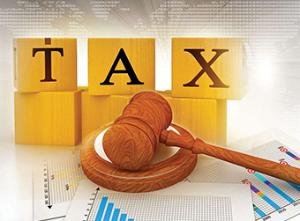The Dangers Of Remaining Financially Illiterate For Young Educated Indians
Blog Title
2677 |
10/7/18 7:09 AM |
Financial literacy is very important literacy but ironically is not given the importance it deserves in our education system.
“One of the reasons the rich get richer, the poor get poorer and the middle-class struggles in debt is because the subject of money is taught at home, not at school.” Robert Kiyosaki, Educational Entrepreneur.
According to Organization for Economic Cooperation and Development (OECD) “financial literacy is a combination of awareness, knowledge, skill, attitude, and behaviour necessary to make sound financial decisions and ultimately achieve individual well-being”.
As per the ‘Global Financial literacy barometer’, India ranked 23rd among the 28 countries surveyed, with 35 percent of its population termed financially literate.
As per a global survey by Standard & Poor’s Financial Services LLC (S&P) less than 25% of adults are financially literate in South Asian countries. For an average Indian, financial literacy is yet to become a priority. India is home to 17.5% of the world’s population but nearly 76% of its adult population does not understand even the basic financial concepts.
What is the status of educated young Indians as far as financial literacy goes?
- The fundamental principle, to know about money is the time value of money
Money grows with time. If kept idle it diminishes in the value. One rupee today is Rs. 1.10 a year later if the rate of interest is 10% per annum.
If you keep money idle and do not invest it loses its value. Its value becomes Rs.0.90 if the rate of inflation is 10% per annum in the country.
If you invest it becomes Rs.1.10 and if you don’t it becomes Rs.0.90 This is a magic power of money put to use vs money kept idle.
This is the reason knowing how to deal with money is very important for everyone.
This is the reason knowing about the rate of inflation and the rate of interest is important for everyone to know.
The rate of inflation is the rate at which the prices of goods go up in the country. It is calculated by the RBI at the retail level and at the wholesale level.
If the rate of inflation is 10% and the rate of interest at which you have invested the money earns you 10%, at the end of the year, your money purchasing power remains the same.
Therefore the challenge for the Govt is to keep the inflation level down so that currency retains its value and people can buy more with the same amount of money. The challenge for the investors is to earn more returns from investments than the rate of inflation in the country.
“You become financially free when your passive income exceeds your expenses.” T. Harv Eker
Having known this principle of the money now let’s understand what more needs to be known.
- Cost of Money
Money is a cost. For the borrowers’ interest they pay and for the savers’ interest, they earn. No money is free. Either you pay every month or you pay every year or you pay by giving up your valuable share in the medium to long-term.
Many times entrepreneurs think equity money is a free money because no immediate interest is payable and no commitment to pay the interest in future. In reality, equity money is the costliest money.
If you don’t pay the dividend, no new investors would invest. If you are a listed entity, your share value will go below the book value. This also erodes the value of your shares in the company. It is cheap only in case you wish to run away with the money and never want to return to the market. Imagine what cost you are paying for this so-called free /cheap money.
Start-up entrepreneurs should know why it is important to dilute the stake as late as possible. Earlier you dilute more % of share you need to dilute. A few % of shares saved today can be of huge value a few years down the line when the company grows to a certain size.
Even if you wish to borrow the money by way of personal loans or by using your credit card the interest you may be paying could be phenomenal. Check out your total outgo before you borrow or overuse credit card and not pay on time.
- Long-term and short-term investments
There is plenty of investment avenue in the financial markets. What an investor needs to know is what is tenure of his investments. This can be determined by knowing the purpose of investments. Whether retirement, children education or your foreign tours few years down the line. Invest your savings to match your future financial requirement.
If you don’t do this either you can’t liquidate the money when you want it or you have to pay a premature withdrawal cost.
- Risk and safety
This is another consideration when you invest your money. Some investments instruments like equity or company fixed deposits are risky. These are unsecured in nature.
But equity investment has a potential to offer you the highest return whereas company fixed deposits can offer you fixed return yet its unsecured instruments so money may not return if the company fails.
Do risk-return analysis before you invest. Know the risk of the instruments and assess your appetite. Avoid risky instruments unless you are prepared to lose the money.
Resist your temptation to invest in schemes which offer attractive more than the market return. The ideal way to invest your risk capital is to invest in the equity shares of Indian blue-chip companies.
Handpicked related post: What should people in their 20s know about the wealth creation from the stock market?
- Insurance Life and Health
This is another prudent financial decision one takes. Having a life insurance and health insurance policy for the family is a sign of financially literate conduct. Keeping the possible risk uncovered could prove costly.
Not having these insurances can make your financial plan go haywire. These policies can protect you/your family in case of sudden medical treatment cost or sudden demise of earning members
- The discipline of investing regularly
Investing is a disciplined activity. This is why SIPs are successful and widely offered by all investment companies. Systematic investment can make your money grow systematically.
Even discipline in paying your dues like credit card and other hills can save interest cost for you. Indiscipline behaviour in dealing with the money is costly.
Pay your utility bills, credit card bills, insurance premium etc before the due date. This is not only a healthy practice but a financially prudent practice.
- Record keeping
This is very important but mostly ignored. Keep all records of your income, expense, investment, and liabilities.
This helps in analysing unnecessary expenses and also helps in managing your investments properly. If you don’t keep the proper records, chances are there you might miss some investments made. This could prove to be costly.
Handpicked related post: 2 wealth creation books to read when you are in the 20s
You are spending the prime time of your life in earning money. Do not remain ignorant about how to manage and protect your earned money.
“The number one problem in today’s generation and the economy is the lack of financial literacy.” Alan Greenspan
Neha Panchal - Financial Content Writer
Neha used to be an Engineer by Profession and Writer by passion, which is until she started pursuing full-time writing. She's presently working as a Financial Content Writer, with a keen interest in all things related to the Insurance Sector.










